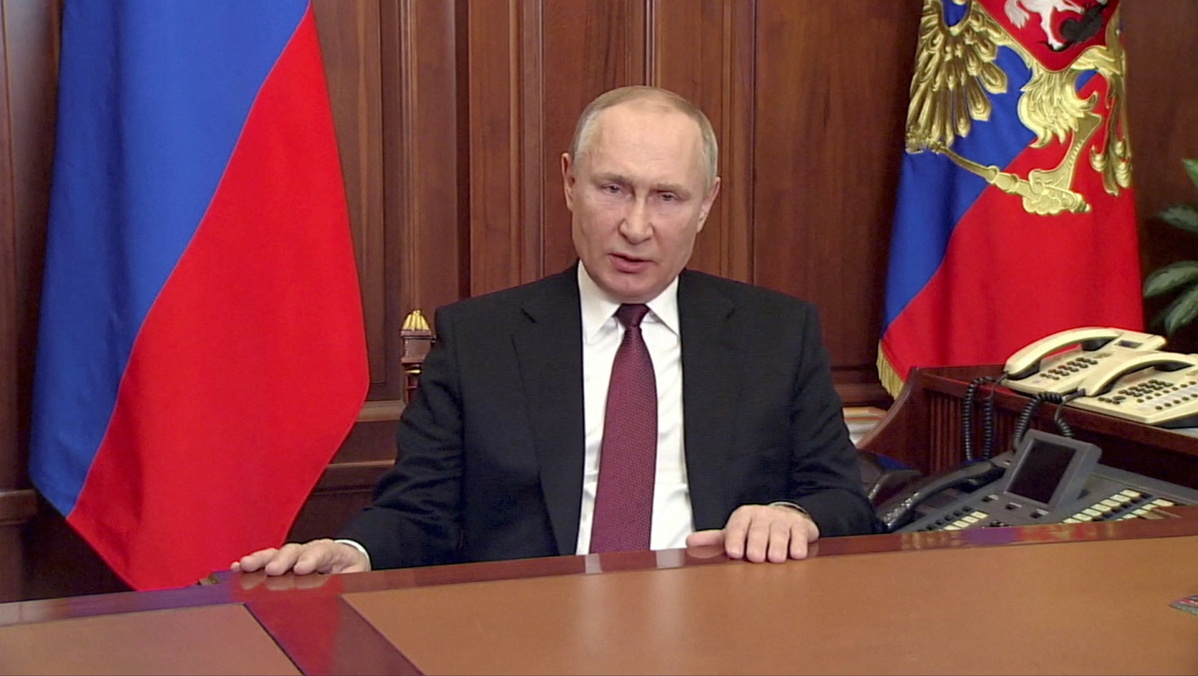Experts: Putin trying to deter greater conflict


Russian analysts say nuclear high-alert order intended to cool any 'hotheads' on other side
Russian President Vladimir Putin's order to place his country's nuclear forces on high alert is part of a pattern of escalating tensions following his "special military operation" on Ukraine.
Putin justified this decision by citing the West's "unfriendly economic actions", as well as the "aggressive "rhetoric against Moscow.
According to Russian experts, this is the first time Russia's nuclear forces have been put on high alert since the end of the Cold War, even though the United States declared that NATO did not pose a threat to Russia.
"Most likely, we are talking about bringing the control system of nuclear forces into a state that makes deterrence forces more stable in the event of an attack," Pavel Podvig, director of the Russian Nuclear Forces Project and senior researcher at the UN Institute for Disarmament Research, told Russian newspaper Kommersant.
"Overall, once a containment force has been brought to this point, it becomes less vulnerable to a first strike. However, this does not mean that Russia is going to attack first."
Western powers including the US and NATO protested sharply after Putin said in a televised address that the country's nuclear "deterrence forces" had been placed on "a special mode of combat service".
The UN called the idea of using nuclear weapons "inconceivable", while Ukraine's government said it saw the move as an attempt at intimidation, as delegations from both countries met for talks on Monday.
Just as within NATO, some of Russia's nuclear weapons are in constant readiness and "can be launched within 10 minutes," said Marc Finaud, a nuclear proliferation expert at the Geneva Centre for Security Policy.
"Either the warheads are already mounted on missiles, or the bombs are already aboard bombers and submarines."
Putin warned last week that if other countries interfered with Russia's plans they would face consequences the "like of which they have never seen".
That statement was widely interpreted as a warning to NATO about direct military involvement in Ukraine. NATO has always been clear that it will not become militarily involved, knowing it could trigger direct conflict with Russia.
Vasily Lata, a senior research fellow at the Academy of Strategic Missile Forces, said Putin's order sought "not to escalate the conflict with the West, but on the contrary, to prevent its aggravation".
Lata believes that through this decision, Putin again warned the US and NATO that meddling in the military conflict in favor of Ukraine was unacceptable and Russia is ready to take "decisive measures".
"At present, it is a necessary and reasonable decision. This will cool any hotheads on the other side," he said.
Viewed in this way, the nuclear alert is a way of emphasizing this message to his own people, the BBC said.
Another way of seeing it is that Putin is worried about Western plans to provide military assistance to the Ukrainians and wants to warn them about not doing too much.
During the Cold War, a huge intelligence machine was created in the West to watch Moscow's nuclear arsenal. Satellites, intercepted communications and other sources were analyzed to look for warning signs such as preparing weapons or aircrews to operate bombers.
Much of that intelligence machine remains in place, and the West will be now watching Russia closely to understand if there is going to be any significant change in behavior.

































